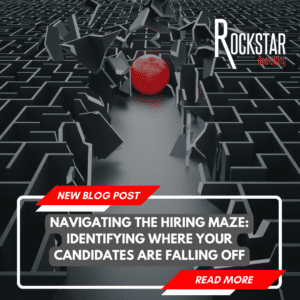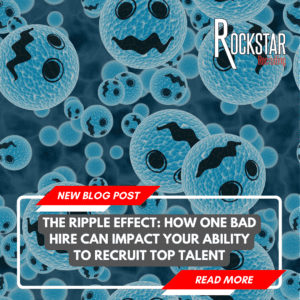Maybe it’s the start of a New Year and promised resolutions (New Year, New Me mantra) or it’s spring with the promise of fresh new beginnings that has HVAC/R Service Technicians, Installers, and Fitters thinking about a new work environment. In reality, it’s more likely you are:
- wanting to do better for yourself and/or family financially (pay/benefits);
- tired of your company’s inability to provide stable work during the low season (and let’s face it, you can’t pay the rent or mortgage with promises of future pay);
- having a difference of opinion with your boss or coworkers;
- seeking to advance your career in the HVAC field either through ongoing training, obtaining an apprenticeship, or moving up into a management position;
- looking for a closer commute or relocating to a new area.
Whatever the reason is for wanting to leave your current employment and looking for a new job in your HVAC/R Residential, Commercial, or Industrial trade, your job search begins with having a resume. Sure, I get told from Techs they don’t have one and never needed one – their reputation in the industry is their resume. While that may be true, you will need a resume to capture a company or recruiter’s attention that you otherwise wouldn’t have access to. Don’t worry, making a resume is pretty simple and straightforward! Below are some tips and guidelines to get you started or maybe improve your existing resume.
FORMAT
Keep your resume simple and easy to read. The purpose of the resume is to showcase your experience and skill set to attract potential employers or recruiters. If you don’t want to create and format the resume yourself, there are many Microsoft templates you can use – just make sure to complete and fill in all sections in the template fully or delete the sections that don’t apply to you.
Alternatively, you can create your own resume by having your name and contact information at the top, list your work history, and any relevant education/certifications you have.
General Tips to Make Your Resume Easy to Read:
- Use spell check (most, if not all, computer programs do this for you)
- Use paragraphs and headings to separate and organize the information (such as the headings below)
- Use sized 11 or 12 font (i.e. Calibri)
- Avoid using CAPS, bold, or italics to write your entire resume
CONTACT INFORMATION
First and foremost, make sure you have your correct name and contact information, including full address, mobile/home phone number, email, and/or a LinkedIn profile link.
Your contact information, such as your phone number or email address, should be current and up-to-date. I cannot tell you the amount of times I have tried to reach out and the phone number is disconnected, or told “this is no longer his/her number,” or the email bounces back failed.
Speaking of emails, if you don’t already have one, create it – it’s free, easy to do, and another popular form of communication with recruiters and companies HR personnel. Keep your email address simple, clean, and professional such as, jdoe@email.com or jdoehvac@email.com. The existing email address you may have used from your younger days such as, partyhard69@email.com, does not leave a good first impression – especially if applying for a management position.
If you are applying for an HVAC job not local to your listed address, make sure to include a sentence close to the top of your resume saying that you are open to relocation and, ideally, the city or State/Province you are looking to relocate to. This alerts the recruiter or company that you didn’t mistakenly apply for the job and are not quickly overlooked.
You have the desired experience and skill set – don’t let something as simple as an incorrect or invalid phone number or email prevent your next dream job from being able to get a hold of you.
WORK EXPERIENCE
List your work history starting with the current or most recent place of employment. Include the:
- title of your position (i.e. Residential HVAC Service Technician, Boiler Technician, Water Tank Installer, Subcontractor, etc.)
- company name
- duration of employment at each company
Provide a brief description of your job duties and the type of HVAC/R systems and equipment you worked on at each company. Potential employers will have a better understanding of the scope of your experience and which HVAC sector your expertise lies with (i.e. Residential, Industrial, or Commercial). For example:
- Residential HVAC Service Technician responsible for servicing, repairing, and maintaining A/C, Water Tanks, Ductless Units, Fireplaces, etc; educated and upsell customers.
- Serviced, inspected, maintained, and installed commercial and light industrial HVAC units: Boilers, Furnaces, RTU’s, A/C, Water Tanks, Heat Pumps, Mini Splits, Air Handling Units, and more.
If you have more than 20 years experience, you can list off the last 10 – 15 years and that is more than enough. Remember, you can always highlight that additional experience during an interview.
Just getting started in the trade? Only list related HVAC trade work, internships, or co-ops where you gained your skilled trades experience. Although it may have given you some spending money, your time at McDonald’s or Dairy Queen will not give you an advantage to getting hired in the trade.
CERTIFICATION/EDUCATION
Provide a listing of all valid and relevant HVAC trade related certifications and training you possess.
- Factory Training
- Trade Certification (i.e. EPA I/II/Universal, NATE Certified, 313A/D, G1/G2/G3 Gas Fitter, etc.)
- Class of Driver’s License
- Related Trades (i.e. Brazing, Electrical etc.)
- Safety Training (i.e. Working from Heights)
Hopefully, this information helped you create a new or updated resume. Contact Rockstar HVAC if you need additional assistance with your resume or if you are looking for a new job!




1 thought on “Your HVAC/R Job Search Starts with Your Resume”
Hello
Thanks for your post I am so grateful knowing some websites like yours are concern about job board, This will help many jobless person.
Comments are closed.